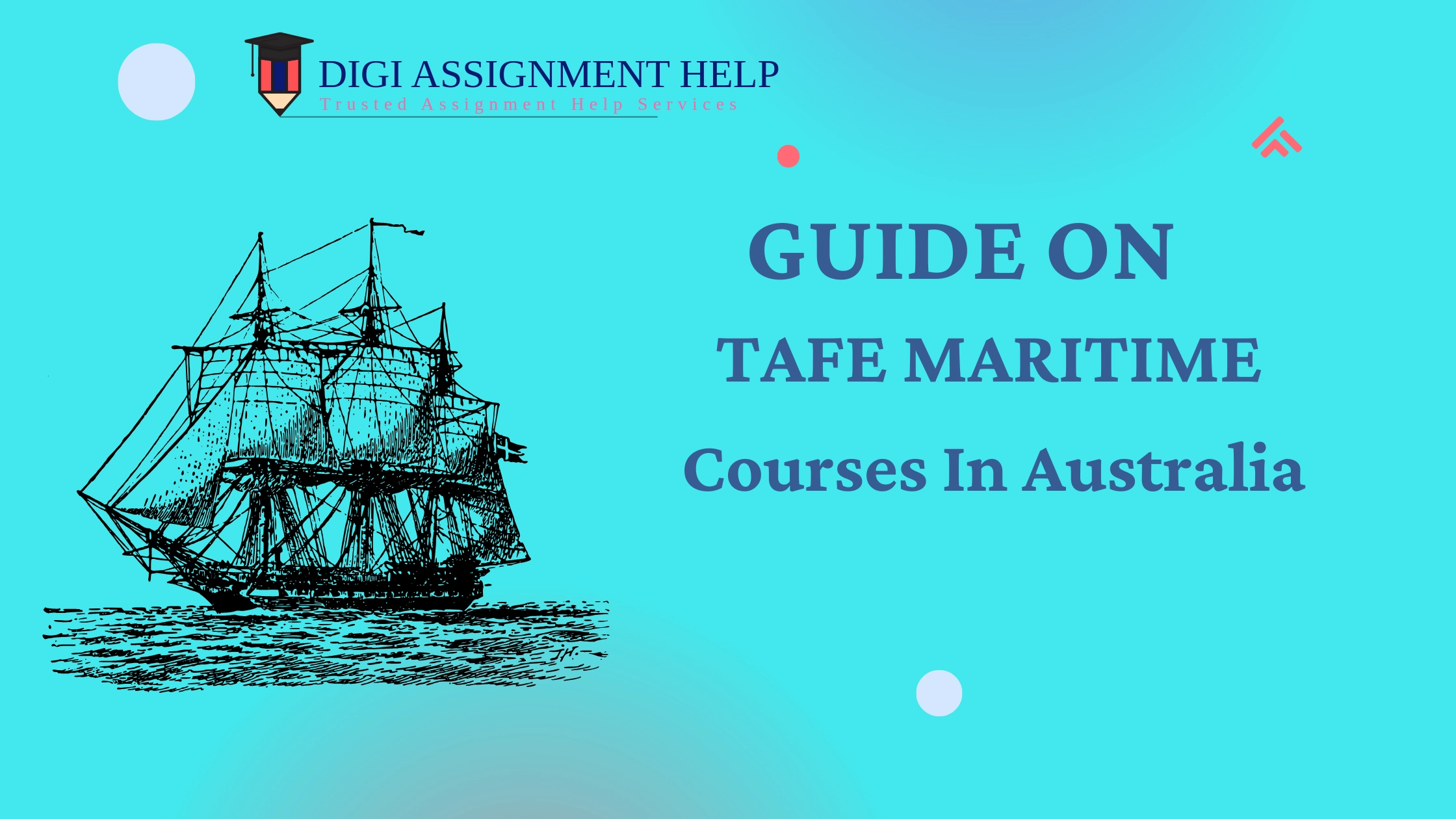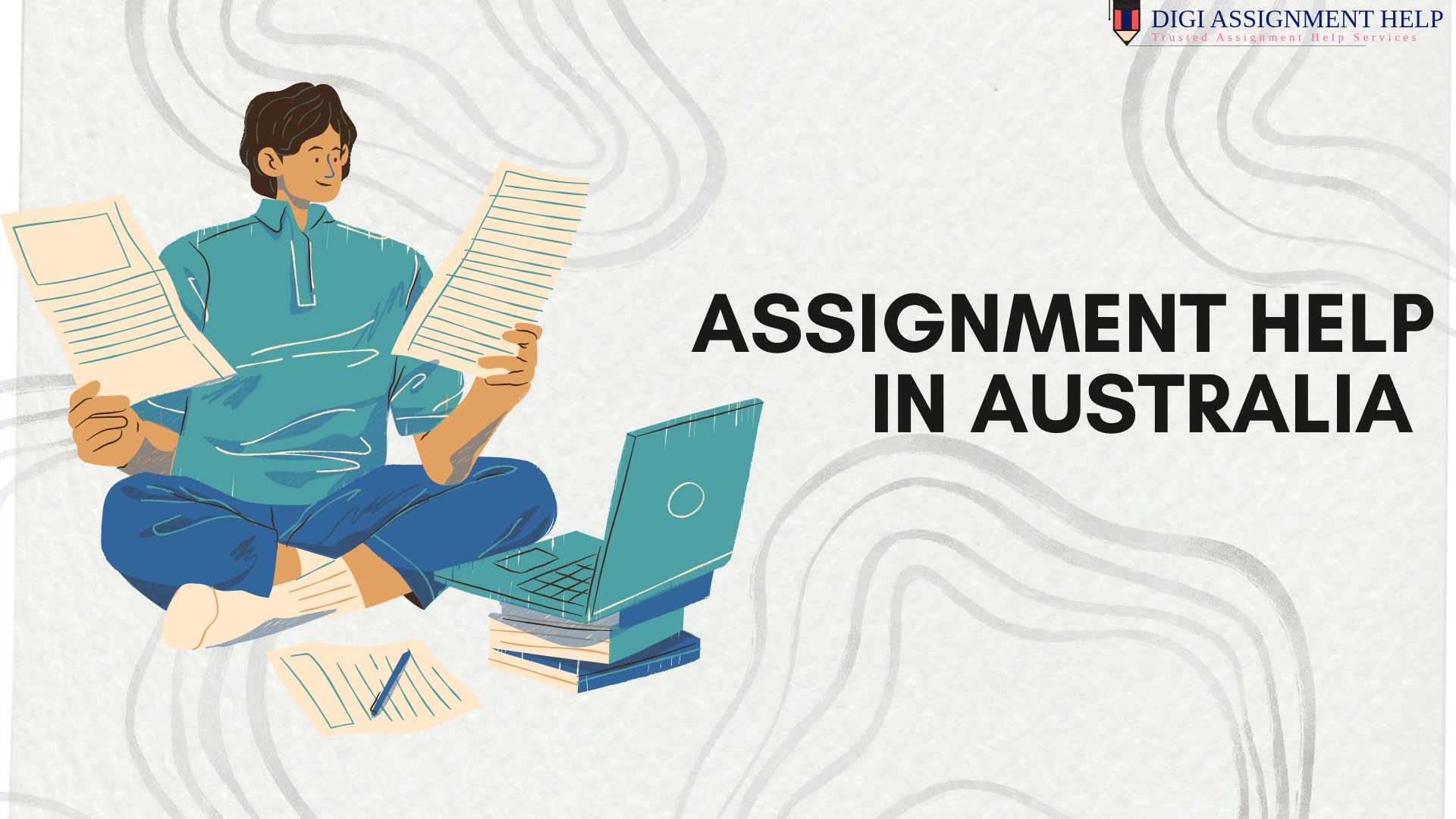Guide On TAFE Maritime Courses Australia
 08-Aug-2024 09:04 AM
08-Aug-2024 09:04 AM

Introduction
Australia has a very long coastline, as well as a huge maritime industry across all its ports. The Marine sector is very popular in Australia. In response to the growing demand for skilled maritime professionals, TAFE (Technical and Further Education) has developed a comprehensive selection of courses.
These programs are designed to provide students with the in-depth skills and knowledge required for various careers in the merchant navy. Through these courses, students gain practical experience and theoretical understanding, preparing them for successful careers in the maritime industry.
What is TAFE?
TAFE colleges provide a wide array of training and educational programs, covering various fields such as maritime studies. Since their inception in 1863, these institutions have prioritized hands-on, practical learning.
They allow students to engage directly with relevant tasks, equipping them with the necessary skills and experience for their future careers. By emphasizing real-world applications, TAFE colleges ensure that their graduates are well-prepared to face practical challenges, especially in the maritime sector.
TAFE courses focus on developing practical skills rather than solely relying on theoretical memorization, ensuring students are prepared for the workforce. With multiple campuses throughout Australia, TAFE offers accessible education that aligns with industry demands. Most students select TAFE as it helps them to be job-ready soon.
Why Choose a Maritime Career?
A career in the maritime industry is both thrilling and fulfilling, offering the chance to travel and experience different locations. Professionals in this field have the opportunity to work aboard ships, in ports, or maritime management roles. Their contributions are vital to Australia's economy, particularly in sectors like trade, tourism, and fishing.
The maritime industry in Australia is dynamic and comes with a responsibility for being practised very safely. Skilled workers in many fields are always needed. This happens to be a well-paying field. A lot of folks appreciate the thrill and variety that come with maritime jobs. They enjoy the opportunity to work in a great environment out on the water, too.
The maritime sector is crucial to the Australian economy. This supports trade, tourism, and fishing. Working in this industry means being a part of something big. Those in careers at sea should be proud of what they do. They help keep Australia connected to the world.
Variants of Maritime Courses at TAFE
There are a range of maritime courses offered by TAFE. Following are a few popular ones:
General Purpose Hand, Certificate I Maritime Operations
• This course is for beginners.
• The basics of how a ship is to be sailed are taught.
• Students learn about safety, seamanship, and basic maintenance.
• It will also teach them about the ways to help in emergencies.
• This has classes, students can take to get a deckhand job on the ship.
Coxswain Grade 1 Near Coastal, Certificate II In Maritime Operations
• The material is applicable for those who are interested in becoming a coxswain.
• It includes navigation, piloting, and safety.
• You will develop your seamanship skills to sail small vessels near the coast.
• They glimpse the laypeople and learn about climate, and tides as well.
• This course is certificate II level and gives you increased responsibilities.
Certificate III in Maritime Operations (Master up to 24 Metres Near Coastal)
• This course is intended to be enjoyed by those who harbour aspirations of becoming a Master Mariner.
• It features advanced navigation and vessel management.
• Students receive training to manage vessels up to 24 meters offshore.
• Additionally, they will learn the rules and regulations governing maritime logistics.
• Students take this course as a way to prepare for their leadership positions on larger vessels.
Certificate IV for marine engine driver grade 3 near coastal.
• This course is for Marine Engineering
• It tells you about engine maintenance and operation.
• Students learn how to operate engines on small boats.
• So, they learn about fuel and how to troubleshoot.
• This is a mandatory course for people willing to join engine rooms.
Diploma of Maritime Operations (Master up to 35 Metres Near Coastal)
-
This is the course for those who wish to master larger vessels.
-
Provides detailed use of navigation, management, and security.
-
Additionally, students learn to captain coast-wise vessels up to 35 meters.
-
In addition, they learn sophisticated maritime laws and regulations.
-
This program is designed to prepare participants for senior management in the maritime industry.
Course Structure and Duration
Many TAFE marine courses are short. The duration of some courses is a few months and for others it may take more than a couple of years. Classroom sessions along with the training part form an integral based on most of the courses. Real ships and simulators are used for practice. Such Hands-On training is highly critical. This allows them to apply what they learned in a classroom setting.
For instance, in a navigation course, students may learn about maps and charts first. Then, they will practice using these tools on a simulator. Ultimately, they would board a training ship and put their knowledge to the test in the field. This technique helps students to learn and also understand what is to be learned.
Entry Requirements
Every class has diverse eligibility criteria. Students are typically required to be 16 years or older. Previous maritime experience or qualifications may be required for some courses. Please consult course-specific prerequisites. They might need to pass a medical check-up. Good health is important for working on ships.
A few courses may involve a minimum level of arithmetic or English expertise. This is because marine work life includes nearby navigation and communication. Students may also be required to demonstrate proficiency in swimming. Safety is a big deal when you work on the water, as well as knowing how to swim.
What You Will Get from Taking Maritime Classes ?
TAFE maritime courses teach many important skills. These skills are useful in the maritime industry. Some of the skills include:
-
Navigating: Reading maps and navigation instruments.
-
Seamanship: The skill of handling a ship or other types of crafts and their equipment.
-
Safety: What you need to know how to keep everyone on board safe
-
Engineering: ship engine maintenance and repair knowledge
-
Communications: Target radios and other means to get your team talking more effectively.
-
Cooperation: The ability to cooperate with others on a ship.
-
Solving problems: What can we do when something goes wrong on the ship?
Maritime law and regulations are another important thing that students should know. They have been created to ensure that the health and safety of our members are taken care of, while also protecting our planet.
These laws are crucial that those who work in the maritime industry should know it. The students even did drills in emergency response. This will help them remain steady and act in a split second if something goes wrong.
Career Opportunities
Graduates after completing the TAFE maritime course have numerous job opportunities. Some of these jobs include:
-
Deckhand: Working on the deck of a ship and assisting with operations.
-
Coxswain: Caring for small boats in-shore.
-
Marine Engine Operator: Performs basic engine room operations for smaller vessels.
-
Shipmaster: For larger vessels and leading the crew.
-
Port and Maritime Manager: Who inspects customer vessels to make sure they are following safety laws user defaults
-
Maritime Educator: How to teach new people in the maritime industry about what we do.
These roles can exist in all sorts of different areas in the maritime industry. Some men work on cargo ships and help to transport goods. Others work on passenger ships such as ferries or cruise ships.
There are also jobs in ports, where workers help load and unload ships. Maritime management and safety officers are usually office people ensuring everything is running as it should be.
Advantages of TAFE Maritime Courses
Maritime TAFE courses provide a host of advantages. They offer hands-on learning in a real-world environment. The training is highly beneficial in the maritime industry. The courses are also fantastic and offer more flexibility.
Many programs can be completed online or in the evenings. It means they can work their way through the course materials. TAFE is usually cheaper than university. It also emphasizes more on practical experience.
Graduates of TAFE courses often get jobs fast. TAFE graduates are attractive to employers because of the practical skills they offer. The courses also provide routes to higher education. There is also the opportunity to study at university. TAFE qualifications are nationally recognised around Australia and in many other countries.
Support Services
TAFEs provide extra support services for students. These services include:
• Academic support: Individual course and assignment assistance
• Career Counseling: A series of information on various career alternatives also job seeking.
• Public Student Services: Help with any personal or financial struggles.
• Work Placement: Assistance in securing work experience or internships
• Tutoring: Help for students who are falling behind
These support services are important, they keep students in line. Support is available for challenging subjects. With the help of academic support and career counselling facilities, they plan their future.
Student services can help with things in your personal life that can affect your studies. Work placements give students a chance to gain real-world experience. Tutoring is also a form of extra help for understanding difficult topics.
Maritime Training Challenges
TAFE maritime courses may have many perks, but also their fair share of challenges. They spend long periods standing up. This might be difficult in extreme weather conditions. This can be difficult, but it is part of the real work you will need to do in a Maritime career.
Travel Maritime jobs usually require lots of travel. Workers separated from their families for long periods can find it challenging to fulfil this promise. Nevertheless, for many, the adventure and experience are well worth it.
It is to be kept in mind that students are also required to always be up-to-date concerning new technology. The marine industry is very dynamic. Every once in a while, you will see new frameworks & libraries pop up. Landlords are willing to have good tenants.
Future Maritime Education & Training
The outlook for maritime training is on an upswing. The industry is booming on the Australian waterfront. To put it in simple terms, this equals more jobs and a higher demand for trained workers. These programs have been changed to handle the new changes in the industry which is why TAFE keeps on revising its courses. The training also contains new technologies and methods.
At the same time, environmental fears are likewise driving market development. There is a growing focus on sustainable practices. TAFE courses now include lessons on protecting the ocean and marine life and this is necessary because of the industry, its future, and the planet.
TAFE Maritime Graduate Stories
In the wake of these initiatives; many TAFE maritime graduates, report some amazing stories. They discuss how their jobs have developed. They like to travel and explore new places. They appreciate the TAFE skills.
One graduate may share their story of breaking in as a deckhand and making captain. The other person might talk about how he repaired an engine aboard a ship saving it from disaster, using his engineering skills. These are the stories about how TAFE changes lives.
What do you need to enrol in a Maritime TAFE Course?
Getting into a TAFE marine course is easy. To find courses, students can use the TAFE website. Read about the courses, entry requirements, etc. They can apply online after they choose the course. Interviews or entrance tests may be required for certain courses.
Also, early application is key as courses can fill up quickly. All entry requirements must be fulfilled by the students. This might include health checks or previous qualifications. Once accepted, students will receive information about the start date and what they need to bring.
Conclusion
Among the best TAFE courses in Australia are its maritime ones. They help students gain the skills needed for a successful maritime career.
It has different courses from which there is nearly something for everyone. TAFE courses are valuable as they give hands-on training and practical skills.
Digi Assignment Help provides great support for those who need help with their TAFE assignment. Their professional guide guarantees that the students do well in their studies. This assistance can impact a student's road to education.



























